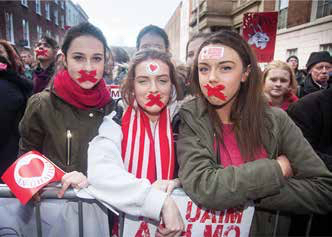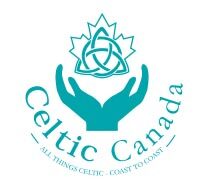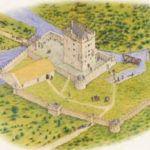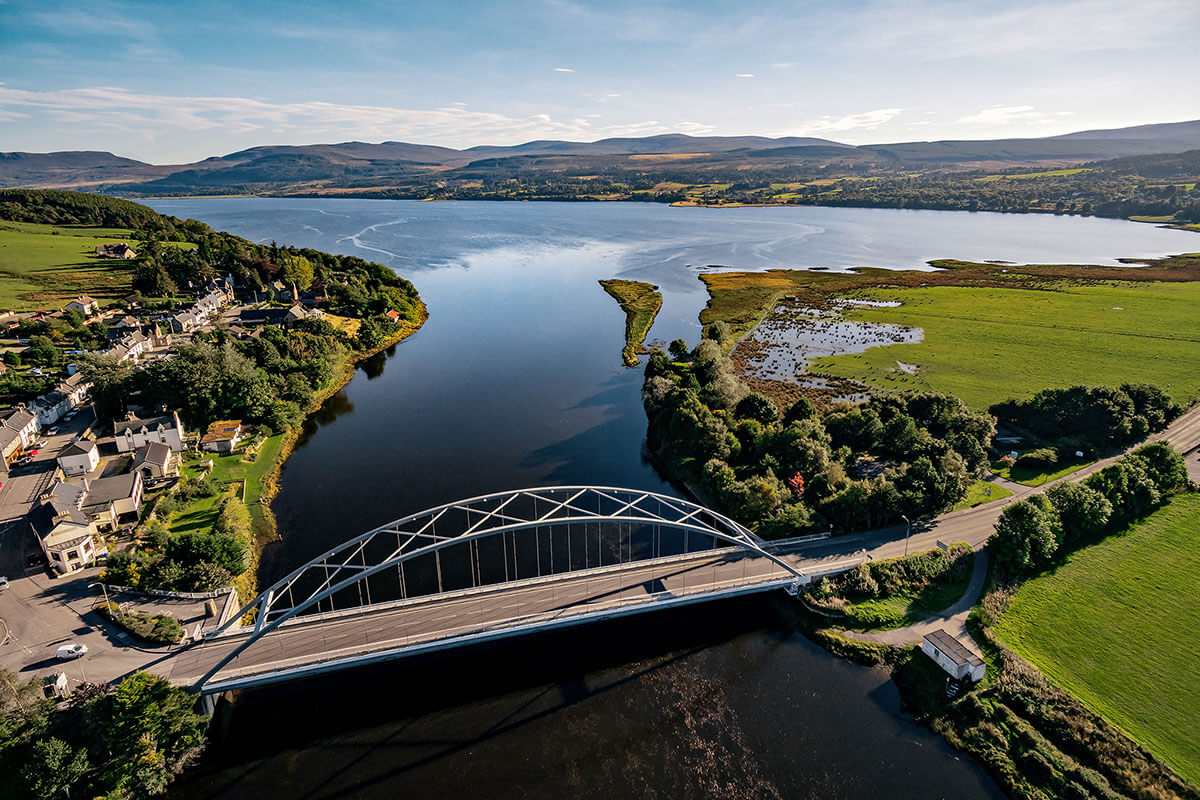I was born and raised in Australia and I came to Ireland and began learning Irish in my thirties. I consider myself to be extremely lucky to have had the opportunity to learn it. While I’m a long way from being articulate ‘as Gaeilge’ I am for the most part beyond the pain barrier that everyone experiences learning a language as an adult. I have had some of the best times of my life learning Irish. But it didn’t take me long to realise that I had also entered a cultural obstacle course.
In the early days I was surprised to find I had to justify myself a lot to people who think the language is worthless. I can’t tell you how many times I was asked ‘Why on earth would you want to learn Irish?’, as if I had had some kind of breakdown and was retreating from the real world into the badlands of a distant past. The companion questions were ‘What is the point?’, ‘What can you do with it?’ and once I was asked ‘Why don’t you go back to Australia and learn an Aboriginal language?’. That is still on my list.
The biggest obstacle I encountered was the ‘shame barrier’.
This really kicked in once I was able to converse in Irish. I would be standing with a group of people in a pub in Galway speaking English when an Irish speaking friend passed by. We would have a quick chat and when I turned back to the group the atmosphere had completely changed. Some people would say how embarrassed they were that I could speak Irish as a ‘foreigner’ when they couldn’t. Others felt excluded and resented it. In their view it was ignorant of us to speak in a language they couldn’t understand in their company. Particularly one that made them feel bad about themselves and perhaps even a little ashamed. I listened to stories about how badly it was taught in schools in these contexts many, many times. So I learned a script that made everything okay. I said that because I was Australian I was let off the hook a bit by Irish speakers and I had an easier time of it than Irish foghlaimeoirí. There may be some truth in that. I also said that because I didn’t go to school here and Irish wasn’t ‘shoved down my throat’ I didn’t have the same emotional baggage relating to the language. I would couch it in familiar terms and that too seemed to make people feel better.
However I do have emotional baggage. It’s just different.
My father was from Wicklow and he emigrated to Australia in 1950 when he was 25 years old. I don’t think he was ashamed of being Irish per se but he was embarrassed by his culture. Traditional music records sent by relatives were hidden away in a drawer and anything overtly Irish was definitely on the nose. We didn’t identify as Irish at home even though my mother is also Irish Australian, and it never bothered me, nor did I feel it affected me one way or another. My father had an accent that we teased him about but that wasn’t unusual in Australia.
When I was a child I asked Dad if there was another language spoken in Ireland and he said there was and that he had learned some at school, but that it was dead. I asked him to say a few words and he began to recite a poem. After the first two lines he faltered and then tripped somewhere inside himself. He was ashamed. It’s a moment I have never forgotten.
Somehow I remembered the first line phonetically and many years later learned that it was a recitation that many of you would be familiar with: An Spailpín Fánach, a tale of misery, of eviction and of exile.
Consequently the idea of coming to Ireland was never attractive to me. When I did eventually come for a visit I discovered that not only was the Irish language alive, there were whole communities that spoke it. There was also a network of people around the country, around the world in fact. This was a revelation. Over the next few years I connected with it gradually and unexpectedly until it became a big part of my life. I certainly didn’t ever imagine that I would be living in Ireland, let alone in the Gaeltacht and speaking a ‘dead language’ on a daily basis.
While undoubtedly all of these events are connected, I didn’t consciously make those connections until I was immersed in the language. I now know where my father comes from and feel that I have some insight into why he felt the way he did about his country and his culture.
In his book Decolonising the Mind the Kenyan writer Ngugi wa Thiong’o says that the most effective area of colonial domination is the “mental universe of the colonised, the control, through culture of how people perceived themselves and their relationship to the world.” He says that political and economic control aren’t possible without cultural control, which “annihilate(s) a peoples belief in their names, in their languages, in their environment, in their heritage of struggle, in their unity, in their capacities and ultimately in themselves.”
I recognise this in my own family, and having been brought up in Australia I recognise it in the devastation wrought on Indigenous Australians. Their diverse languages and cultures were seen as worthless and uncivilised and the view was that they needed to be relieved of them by a paternalistic colonial ruling class. Aboriginal communities have placed language maintenance and revival at the centre of their struggle to regain something of what was taken from them. Language and culture have also become central in defining Aboriginal identity and many would give anything to have their own living language back.
Up until the 1970s assimilationist policies in Australia also extended to non-English speaking immigrants. I have memories in my youth of people speaking Italian, Greek or Mandarin amongst themselves being told ‘to speak fucking English’. Policies that recognise diversity and have supported multiculturalism have done a lot to help change people’s attitudes.
I’ve heard people say that they would love to speak Irish, but they feel that they’re perceived as not good enough by some Irish speakers and so feel rejected. That there’s an exclusivity and an elitism connected to the Irish language. It can be very difficult terrain.
I can only speak from my own experience, but I had my moments when I just wanted to give it up. I’d speak Irish to people, they’d speak English back. It made me feel bad and I felt I wasn’t ever going to be able to communicate. I came to understand that in many small communities the language was spoken amongst people who all knew each other and their respective families well, going back generations. Often the same people were discriminated against for speaking Irish. So it took time and I had to build relationships and trust. Just because I was enthusiastic about learning the language didn’t mean they had to automatically let me in. Some people didn’t want me to feel uncomfortable as I struggled to make myself understood in Irish and so speaking English was an effort to ease my discomfort, and no doubt their own. I realised I had to let people know I was serious about it and make a huge effort. What I found then was incredible generosity and open heartedness.
When it comes to language purists that can be a frightening prospect. I once reversed my car into a pole because I was so worried about my bad grammar after doing a radio piece. I was gripped by an irrational fear that the people listening at home were wielding red pens and marking big crosses through everything I said. I felt ashamed for not having perfect Irish. In a minority language context in particular ‘conservationists’ are important, and they’re usually very nice people. I have to admit I tend to run away from anyone I suspect might be a bit hard core because I get tongue tied. I’m also aware that the Irish I speak is a diluted version. I try not to apologise for it, but I’m aware of it.
When I participated in the march for Irish language rights in Dublin recently I had a few conflicting feelings. I wondered momentarily if I had the right to be there as an Australian. I wanted to be there because I am grateful to every Irish teacher I have ever had and to every person who has ever taken the time to encourage me. I’m also proud to be a part of the Irish language community.
As we walked down O’Connell Street the gravity of the situation really hit home. Irish speakers are marching for recognition and rights as if they are a maligned ethnic minority or indeed an oppressed indigenous people. It seems for many people that is what Irish speakers represent.
A friend from Carna remarked that this was the first day in her life that she had spoken Irish from morning to night other than when she was at home. There were people there from all over the country who make herculean efforts to maintain Irish as a living language both in and outside of Gaeltacht areas. In a recent article Rónán Ó Muirthile made an appeal for public support so that he is able to pass Irish on to his son “so that that deeper heritage survives for all Irish people.”
What I’ve learned is that the world looks very different through the lens of Irish. It has helped me to make sense of it. I can’t express those feelings adequately in your native language, but I can appreciate those who do and that has been a gift. Through them, I feel deeply connected to a language and a culture that I didn’t even know existed.









